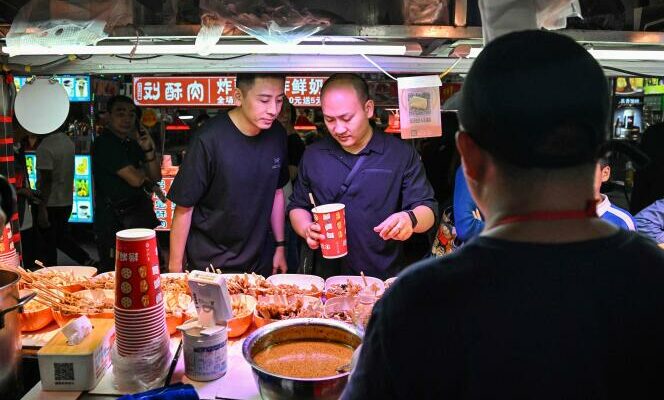Shawn Kuo, 46, is Taiwanese, but she has lived and worked in Shanghai for around twenty years. However, there is no question of missing the Taiwanese presidential and legislative elections, which are being held on Saturday January 13. She returned specially to Taipei to make her voice heard, worried about seeing the country divided on issues of identity: “Recently, I felt discriminated against because my father is Chinese and I still have strong ties to China. » She makes no secret of her choice, she will vote for the Kouomintang (KMT), the historic nationalist party, which took refuge on the island of Taiwan after its defeat by the communists in 1949.
Today in opposition, the KMT advocates rapprochement with China, particularly in the economic field. “As I work in China, I am of course in favor of a party that offers more peaceful relations with Beijing”she justifies.
The Democratic Progressive Party (DPP), in power for eight years, more firmly defends Taiwan’s sovereignty in the face of the threat from Beijing, which considers the island a rebel province.
Like Shawn Kuo, a large proportion of Taiwanese living in China traveled for this election. Taiwanese elections generally see a high turnout rate (74.9% in 2020). In the absence of an embassy, since Taiwan (officially “Republic of China”) is not recognized as a state in its own right, Taiwanese nationals living abroad must come to the country to vote.
Hope for warming
More than half of the Taiwanese diaspora lives in China, or 163,000 people in 2021, according to the Taiwanese government. But their number has fallen by 60% since 2011. The Chinese economic slowdown, the increase in labor costs, tensions between Beijing and Taipei have convinced more and more Taiwanese companies to relocate to other Asian countries, a trend reinforced by the Covid-19 pandemic from 2020. If the dependence of the Chinese economy on Taipei declines, the Chinese neighbor has still absorbed 35% of Taiwanese exports in 2023.
Beijing has ensured that this community does not miss the electoral deadline: around ten airlines, most of them Chinese state carriers, have offered price reductions of up to 70% on tickets to Taiwan on time of the election. An initiative organized by the Association of Taiwan Enterprises Investing in the Mainland, an entity linked to the Taiwan Affairs Office, a department of the Chinese government.
You have 60% of this article left to read. The rest is reserved for subscribers.
